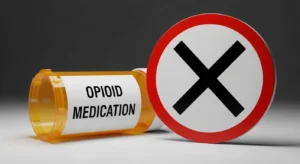Decline in Opioid Overdose Deaths
 One of the most notable developments in 2025 is the significant decline in opioid overdose deaths. According to provisional data from the Centers for Disease Control and Prevention (CDC), there was a 27% decrease in drug overdose deaths from 2023 to 2024, marking the largest one-year drop in recorded history. This decline is attributed to several factors, including increased access to naloxone, expanded addiction treatment programs, and shifts in drug use patterns. However, experts caution that while this progress is encouraging, the opioid crisis remains a pressing public health issue, with fentanyl continuing to be a major contributor to overdose deaths.
One of the most notable developments in 2025 is the significant decline in opioid overdose deaths. According to provisional data from the Centers for Disease Control and Prevention (CDC), there was a 27% decrease in drug overdose deaths from 2023 to 2024, marking the largest one-year drop in recorded history. This decline is attributed to several factors, including increased access to naloxone, expanded addiction treatment programs, and shifts in drug use patterns. However, experts caution that while this progress is encouraging, the opioid crisis remains a pressing public health issue, with fentanyl continuing to be a major contributor to overdose deaths.
Rise in Methamphetamine-Related Deaths
While opioid-related deaths have declined, methamphetamine-related deaths have seen a concerning increase. Methamphetamine use has surged across various demographics, leading to a rise in related fatalities. The National Institute on Drug Abuse (NIDA) reports that methamphetamine use has been steadily increasing, with significant spikes in certain regions. This trend poses new challenges for public health officials, as methamphetamine use often co-occurs with other substance use disorders, complicating treatment and prevention efforts.
Alcohol-Related Deaths Remain a Concern
Alcohol continues to be a leading cause of substance-use related deaths. Despite public health campaigns and increased awareness, alcohol-related fatalities remain high. The CDC reports that alcohol-induced mortality has decreased since the peak during the COVID-19 pandemic but remains above pre-pandemic levels. Additionally, certain demographic groups, such as individuals with lower educational attainment and those in specific occupations, exhibit higher rates of alcohol-induced mortality.
Emergence of New Synthetic Substances
 The rise of synthetic drugs presents a new frontier in the battle against substance-use related deaths. Substances like fentanyl analogs and synthetic cannabinoids have been linked to numerous overdose deaths. The European Union Drugs Agency (EUDA) highlights the escalating health threat posed by synthetic drugs across Europe, noting the emergence of new variants and the increasing complexity of substance mixtures. These developments underscore the need for enhanced surveillance and rapid response strategies to address the evolving drug landscape.
The rise of synthetic drugs presents a new frontier in the battle against substance-use related deaths. Substances like fentanyl analogs and synthetic cannabinoids have been linked to numerous overdose deaths. The European Union Drugs Agency (EUDA) highlights the escalating health threat posed by synthetic drugs across Europe, noting the emergence of new variants and the increasing complexity of substance mixtures. These developments underscore the need for enhanced surveillance and rapid response strategies to address the evolving drug landscape.
Impact of Public Health Interventions
Public health interventions have played a pivotal role in mitigating substance-use related deaths. Programs focusing on harm reduction, such as needle exchange programs and supervised consumption sites, have shown promise in reducing overdose fatalities. For instance, the opening of the Thistle supervised drug consumption facility in Glasgow has been associated with increased engagement with health services and a reduction in public drug use. However, the effectiveness of such interventions varies, and ongoing evaluation is necessary to ensure their success.
Conclusion
The trends in substance-use related deaths in 2025 reflect a complex interplay of factors, including shifts in drug use patterns, the emergence of new substances, and the impact of public health interventions. While progress has been made in certain areas, challenges persist, necessitating continued efforts to address the root causes of substance use and to implement effective prevention and treatment strategies. Public health officials, policymakers, and communities must collaborate to adapt to these changing trends and work towards reducing substance-use related deaths.
